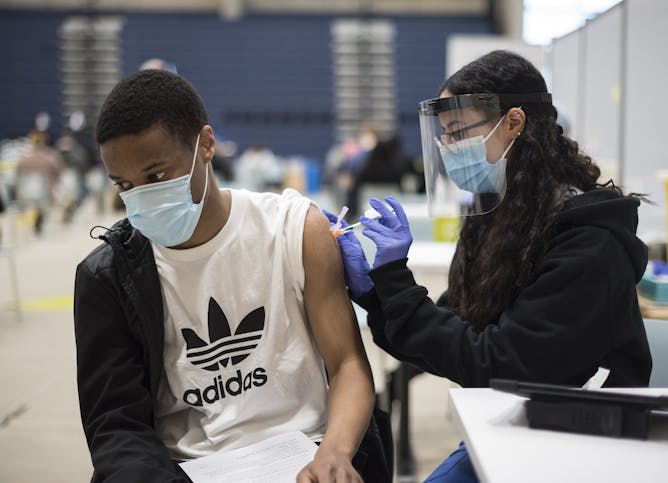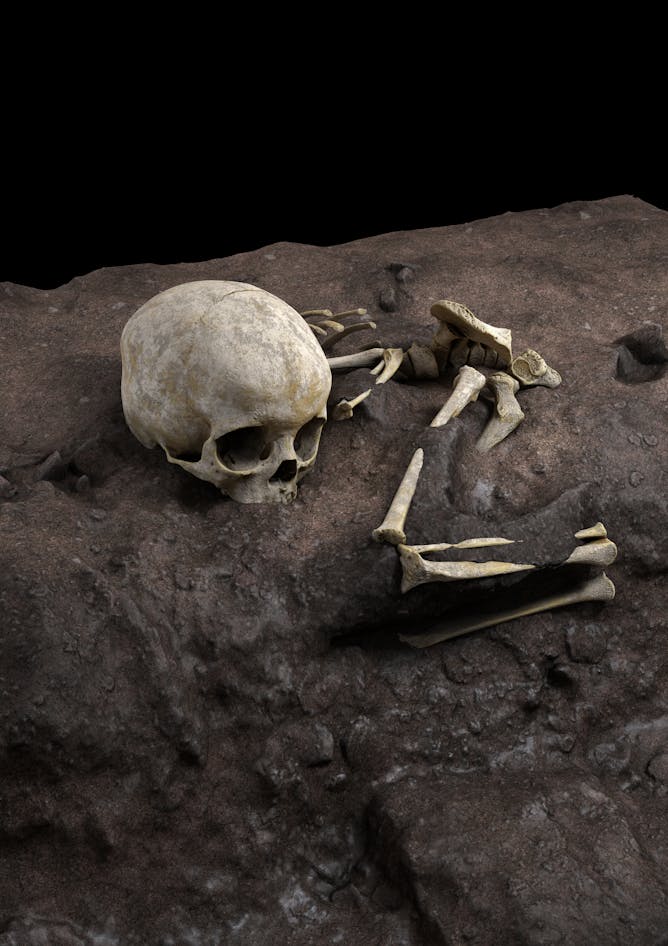|
This week, the International Society for Stem Cell Research — the world’s largest stem cell research body — announced that it would no longer support the 14-day restriction on research using human embryos. The restriction was more symbolic than anything until recently, as researchers managed to keep a human embryo viable for 13 days.
Today in The Conversation Canada, Françoise Baylis at Dalhousie University writes about what this decision means from an ethics standpoint. Rather than blanket rules regarding research, Baylis suggests that time limits could be determined “based on the minimum amount of time required to address the stated research objectives.” More importantly, these considerations should include consultations with the public.
Also today:
All the best.
|
Nehal El-Hadi
Science + Technology Editor
|

|
|

Human embryo research is used to understand foetal development and its applications in treating or eliminating disease.
(Shutterstock)
Françoise Baylis, Dalhousie University
In most countries, scientific research that uses human embryos has to halt after the 14th day. New guidelines recommend the public's input in extending the time period.
|

Aryna Sabalenka from Belarus returns the ball to Simona Halep of Romania during their semifinal tennis match of the women’s singles WTA Tour Porsche Grand Prix in Stuttgart, Germany in April 2021.
(Marijan Murat/Pool via AP)
Swarali Patil, Western University
The governing bodies of professional tennis need to do more to prioritize athlete well-being — and there's no better time to start than now.
|

Health-care professions like nursing are at risk of experiencing a post-pandemic exodus of workers due to burnout and moral distress.
(Shutterstock)
Deborah Tregunno, Queen's University, Ontario; Tracy J. Trothen, Queen's University, Ontario
To live well through and beyond the pandemic, we need to recognize the moral distress experienced by people, and especially health-care workers.
|

Close to 25 per cent of the world’s remaining temperate rainforest is in B.C., mainly along the coasts.
(Shutterstock)
David Tindall, University of British Columbia
Environmental groups have protested logging of British Columbia's old-growth rainforest for three decades. But the Fairy Creek dispute could grow into another 'War in the Woods.'
|

Little work has been done to understand young people’s willingness to receive COVID-19 vaccines. Above: a COVID-19 vaccination clinic at the University of Toronto Mississauga campus on May 6.
THE CANADIAN PRESS/ Tijana Martin
Tracie O. Afifi, University of Manitoba; Ashley Stewart-Tufescu, University of Manitoba; Janique Fortier, University of Manitoba; Samantha Salmon, University of Manitoba; S. Michelle Driedger, University of Manitoba; Tamara Taillieu, University of Manitoba
As vaccine eligibility is expanded to adolescents and young adults, understanding who might be more likely to be vaccine hesitant, and why, can help inform public health strategies
|
La Conversation Canada
|

Un agent de sécurité éloigne les journalistes de l'Institut de virologie de Wuhan après l'arrivée d'une équipe de l'OMS pour une visite de terrain à Wuhan, dans la province chinoise du Hubei, le 3 février 2021. L'équipe n'est arrivée à aucune conclusion sur les origines de la pandémie.
(AP Photo/Ng Han Guan)
Benoit Barbeau, Université du Québec à Montréal (UQAM)
Les études de gain de fonction permettent de créer un virus plus pathogénique et/ou plus transmissible chez l’humain. Sont-elles à l’origine du SARS-CoV-2 ?
|

Le magazine Forbes estime qu’en 2020, plus de 100 millions de personnes ont écouté régulièrement des balados et que ce nombre pourrait atteindre 125 millions en 2022.
Shutterstock
Jean-François Sénéchal, Université Laval
L’écoute sous forme de balado permet de mieux se concentrer sur l’information véhiculée. Entre « entendre » et « comprendre », il y a parfois un pas, que le balado permet de franchir.
|

Les pommes de terre ont une mauvaise réputation. Pourtant, bien apprêtées, elles recèlent des bienfaits pour la santé.
Sergej Cash/ Shutterstock
Duane Mellor, Aston University
Les pommes de terre contiennent de nombreuses vitamines et nutriments essentiels à une bonne santé.
|

Reconstruction virtuelle de la position de Mtoto dans la fosse mortuaire.
(Jorge González/Elena Santos)
Simon Armitage, Royal Holloway
Les enterrements semblent avoir été peu fréquents en Afrique il y a environ 80 000 ans, alors qu'ils étaient répandus en Eurasie.
|
Culture + Society
|
-
Jaimie Arona Krems, Oklahoma State University; Michael Varnum, Arizona State University
A new study finds that women are just as likely as men to assume something's wrong with a woman who decides she wants to sleep with a handful of partners.
|
|
Podcasts
|
-
Gemma Ware, The Conversation; Daniel Merino, The Conversation
Plus, how a new wave of South African romcoms is reimagining Johannesburg. Listen to episode 17 of The Conversation Weekly podcast.
|
|
Arts
|
-
Michael Nichols, Martin University
'WandaVision' reimagines stories from Egyptian and Greek mythology, as well as Buddhist tradition.
|
|
Science + Technology
|
-
Julie Dunne, University of Bristol
The study yields the first direct chemical evidence for honeybee product exploitation in West Africa.
|
|
| |
| |
| |
| |
| |
| |
|
|